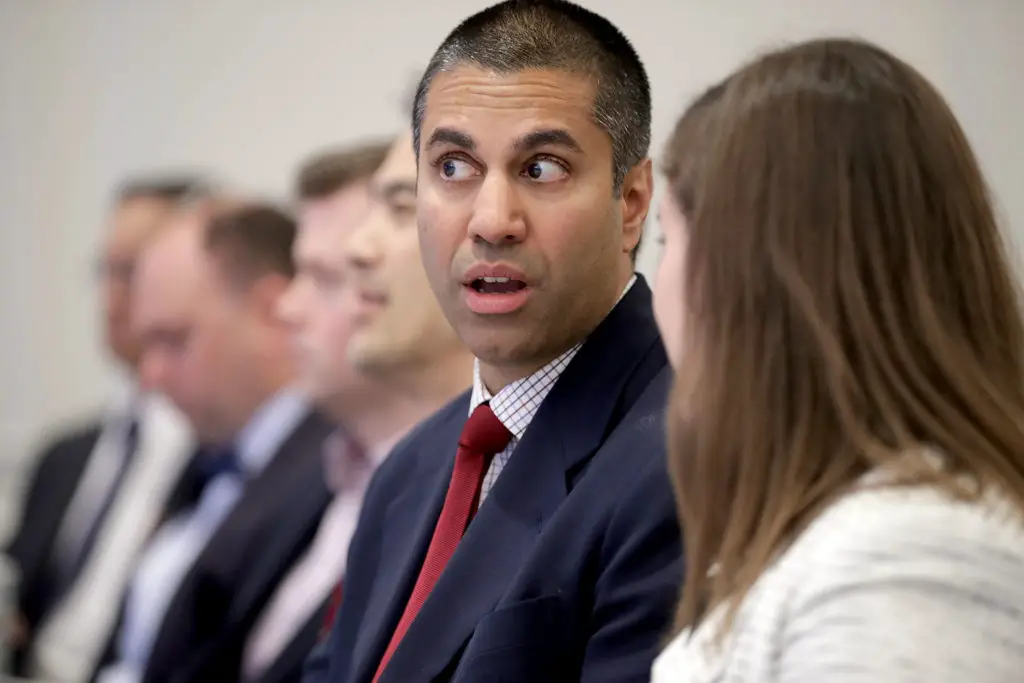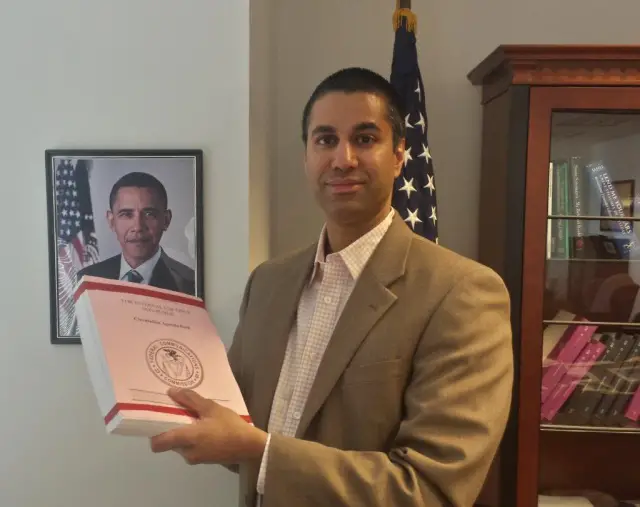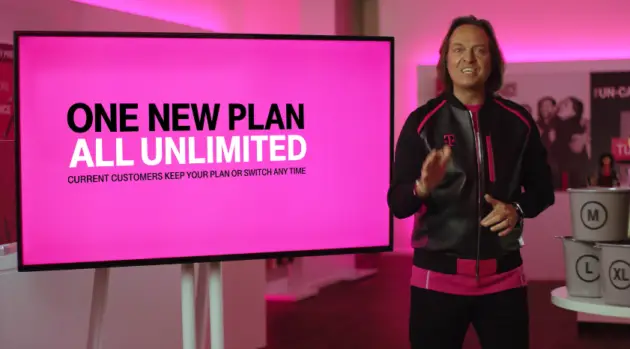
Pai to the face: FCC rolls out plot to kill net neutrality
The end of the net neutrality era took a bold, blind and really bad step forward Tuesday, thanks to the FCC.
True to his over-enthusiastic word, US Federal Communications Commission Chair Ajit Pai rolled out his intentions to kill net neutrality, just as most lawmakers in Washington left Capitol Hill in the rearview mirror for the Thanksgiving holiday.
Let’s take a look at the headlines, shall we?
The New York Times says “FCC plans net neutrality repeal in a victory for telecoms.”
From the GeekWire: “Why net neutrality’s peril raises the stakes for future satellite broadband options.”
The scariest comes from the Washington Post:

Good lord.
Reporter Brian Fung writes that the FCC’s plan “would give internet providers broad powers to determine what websites and online services their customers see and use. Under the agency’s proposal, providers of high-speed internet services, such as Comcast, Verizon and AT&T, would be able to block websites they do not like and charge web companies for speedier delivery of their content.”
Over at Recode, Tony Romm says Pai’s proposal “seeks to shift the responsibility for net neutrality to another federal agency — one the arguably has far fewer powers to protect consumers from corporate harm. And he opens the door for AT&T, Verizon and others to begin to strike deals with web companies for faster delivery of their music, movies or other content — arrangements derided as ‘online fast lanes’ by critics who fear it would break the internet.”
By the way, this isn’t cutesy, trendy, ohmigawd Kardashian “break” the internet we’re talking about here. This is real, true, inaccessible, incompatible, waiting for pages to load, hearkening back to the days of (dear lord) dial-up (by comparison) internet for pages whose owners are unwilling or unable to pay big buckets of money to get faster service.
Are you screaming into a pillow yet?
Consider this:
In Portugal, with no net neutrality, internet providers are starting to split the net into packages. pic.twitter.com/TlLYGezmv6
— Ro Khanna (@RoKhanna) October 27, 2017
That. Could. Happen. In. The. US. Under. These. Proposed. Changes.
“Why didn’t people speak up,” you ask? “Why didn’t someone do something to try and stop this? Why didn’t the FCC ask the people of the country what they wanted, whether they supported the original rules or whether they wanted change?”
Oh, they did. The FCC followed US federally mandated rulemaking procedures, opening a public comment period.
More than 22 million comments were received. And Pai is ignoring the vast majority of them because they don’t fit his narrative.
Enter Eric Schneiderman.
Does that name ring a bell? It might: He’s the Attorney General for New York State and has been investigating and fighting ticket bots (among other evils) for the past two or more years.
In a letter released Tuesday afternoon, Schneiderman does not mince words.
“In today’s digital age, the rules that govern the operation and delivery of internet service to hundreds of millions of Americans are critical to the economic and social well-being of the nation. Yet the process the FCC has employed to consider potentially sweeping alterations to current net neutrality rules has been corrupted by the fraudulent use of Americans’ identities — and the FCC has been unwilling to assist my office in our efforts to investigate this unlawful activity.”
WOO! It goes on.
“Specifically, for six months my office has been investigating who perpetrated a massive scheme to corrupt the FCC’s notice and comment process through the misuse of enormous numbers of real New Yorkers’ and other Americans’ identities. Such conduct likely violates state law — yet the FCC has refused multiple requests for crucial evidence in its sole possession that is vital to permit that law enforcement investigation to proceed.”
Schneiderman adds that US federal law requires – not suggests, not encourages, not hopes, but requires— the FCC to “take public comments on proposed rules into account — so it is important that the public comment process actually enable the voices of the millions of individuals and businesses who will be affected to be heard. That’s important no matter one’s position on net neutrality, environmental rules, and so many other areas in which federal agencies regulate.”




Pingback: A Journal of Musical ThingsNet Neutrality: The Pai-nal countdown - A Journal of Musical Things